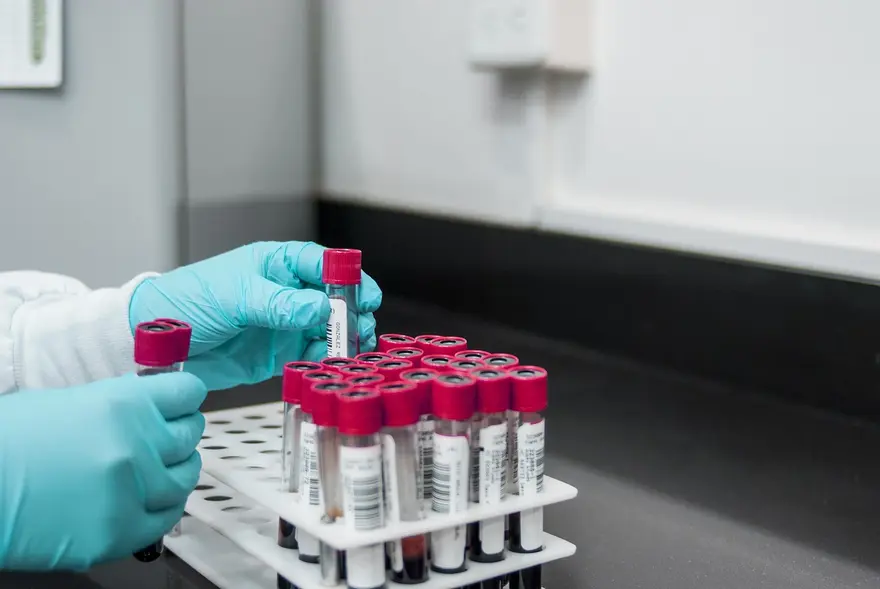Preventive Healthcare
Understanding MCV Blood Test (Mean Corpuscular Volume): Normal Range, Low MCV & Results
7489 Views
0

Have you ever wondered what goes on inside your body when you get a blood test? One essential aspect is the MCV (Mean Corpuscular Volume) level, a tiny detail that can tell you a lot about your health. This detail is like peeking into your blood to understand how your red blood cells are doing. So, in this article, we'll discuss what is a normal level and how it all affects you. Let's unravel the mystery behind these numbers in your blood reports and discover what they can reveal about your well-being.
What is Mean Corpuscular Volume (MCV)?
Mean Corpuscular Volume (MCV) is a crucial measure in a routine blood test that assesses the average size of your Red Blood Cells (RBCs). This Mean Corpuscular Volume (MCV) can be influenced by various factors affecting red blood cells. Nutritional deficiencies, particularly in iron, vitamin B12, and folate, play a crucial role. Chronic diseases such as kidney disease and inflammatory disorders can also impact MCV levels.
Additionally, certain medications, like chemotherapy drugs, may alter red blood cell size. Moreover, alcohol consumption and liver disorders can also contribute to MCV variations. Therefore, understanding these factors is essential for healthcare professionals to interpret MCV results accurately and identify underlying health conditions.
The MCV blood test specifically quantifies the volume occupied by these red blood cells. It is like determining the average size of houses in a neighbourhood. This measurement is expressed in femtoliters (fl), a unit that represents one quadrillionth of a litre.
Low Mean Corpuscular Volume (MCV) typically indicates microcytic anaemia, a condition where red blood cells are smaller than normal. On the other hand, high MCV suggests macrocytic anaemia, characterised by larger-than-normal red blood cells. Both low MCV and high MCV levels play crucial roles in diagnosing underlying health conditions and guiding appropriate interventions.
In short, the MCV blood test helps healthcare professionals identify potential issues with the size of your red blood cells, aiding in the diagnosis and treatment of blood-related disorders. Keeping your MCV within the normal range ensures the efficient functioning of these oxygen-carrying cells, contributing to overall health.
When is an MCV Blood Test Performed?
A Mean Corpuscular Volume or MCV blood test is performed as part of a routine blood test called a Complete Blood Count (CBC). Doctors often advise an MCV blood test to check for signs of medical conditions related to blood disorders, such as anaemia, and to assess the average size of RBCs.
The test becomes particularly valuable when there is a suspicion of abnormal red blood cell size. If the red blood cells are either too small or too large, it may indicate underlying health issues.
How Does an MCV Blood Test Work?
An MCV blood test involves determining the volume occupied by red blood cells, which is done by dividing the total volume of the RBCs by their count in the sample. The MCV blood test value reveals the size variation among red blood cells. For instance, microcytic anaemia is characterised by smaller-than-normal red blood cells, while macrocytic anaemia involves larger-than-normal cells.
How Do I Prepare For The Test?
An MCV blood test is a routine procedure that typically does not require any special preparation. There are a few things you can do to ensure a smooth and comfortable experience:
- Inform your doctor about any medications or supplements you are taking.
- Fasting for at least 8 hours
- Wear comfortable clothing
What Happens During An MCV Blood Test?
The MCV blood test usually takes only a few minutes for blood collection.
- A small blood sample is drawn from a vein, typically in the arm, through a thin needle to collect a small amount of blood test tube.
- The sample is processed, and the Mean Corpuscular Volume (MCV) is calculated.
- The MCV value is compared to the normal range, typically between 80 to 100 fL. An abnormal MCV level can indicate either smaller or larger than normal red blood cells, providing indications about potential underlying conditions.
What Are The Risks of This Test?
An MCV blood test is a routine procedure with minimal risks. The most common side effects are:
- Pain or discomfort at the puncture site
- Slight bruising at the puncture site
- Bleeding from the puncture site
- Fainting or dizziness
- Infection at the puncture site
When Should I Know the Results of An MCV Blood Test?
You can expect to receive the MCV blood results within 24 to 48 hours. Some factors that can influence the turnaround time:
- The processing time may be longer when the laboratory is handling many samples.
- Communication methods may be received early, i.e., the reports shared via online mediums.
What is a Normal MCV Level?
The normal level of Mean Corpuscular Volume (MCV) typically ranges from 80 to 100 femtoliters (fl). An MCV within this range indicates the average size and volume of red blood cells, contributing to a healthy blood profile. Deviations from this range may warrant further investigation into potential health issues.
What Level of MCV is Concerning?
A concerning level of Mean Corpuscular Volume (MCV) is typically observed when the value falls outside the MCV normal range of 80–100 femtoliters (fl). The deviations from the MCV normal range can be indicative of various health issues.
An MCV below 80 fl may indicate microcytic anaemia or low MCV, characterised by smaller-than-normal red blood cells. Iron deficiency anaemia, thalassemia, or other hemoglobinopathies are some of the causes of low MCV. Conversely, an MCV above 100 fl may suggest macrocytic anemia involving larger-than-normal red blood cells. Some of the symptoms of high MCV blood test value include fatigue, weakness, and pale skin, which are associated with certain types of anaemia. Some of the symptoms associated with low MCV and MCH levels may also include fatigue, pale skin, shortness of breath, rapid heartbeat, and weakness. This is why monitoring MCV blood test levels helps in the early detection and management of potential blood disorders, ensuring timely intervention and appropriate medical care.
Conclusion
Mean Corpuscular Volume (MCV) is pivotal for diagnosing anaemia and understanding overall health. This measure, indicating red blood cell size, aids in identifying microcytosis due to iron deficiency and differentiating anaemic conditions. Ranging from 80–100 femtoliters (fl), MCV is a reliable test value for routine screenings and predictive insights, even correlating with tumour response to treatment. So, get your complete blood analyses and accurate results with the leading pathology brand, Metropolis Labs!























 WhatsApp
WhatsApp